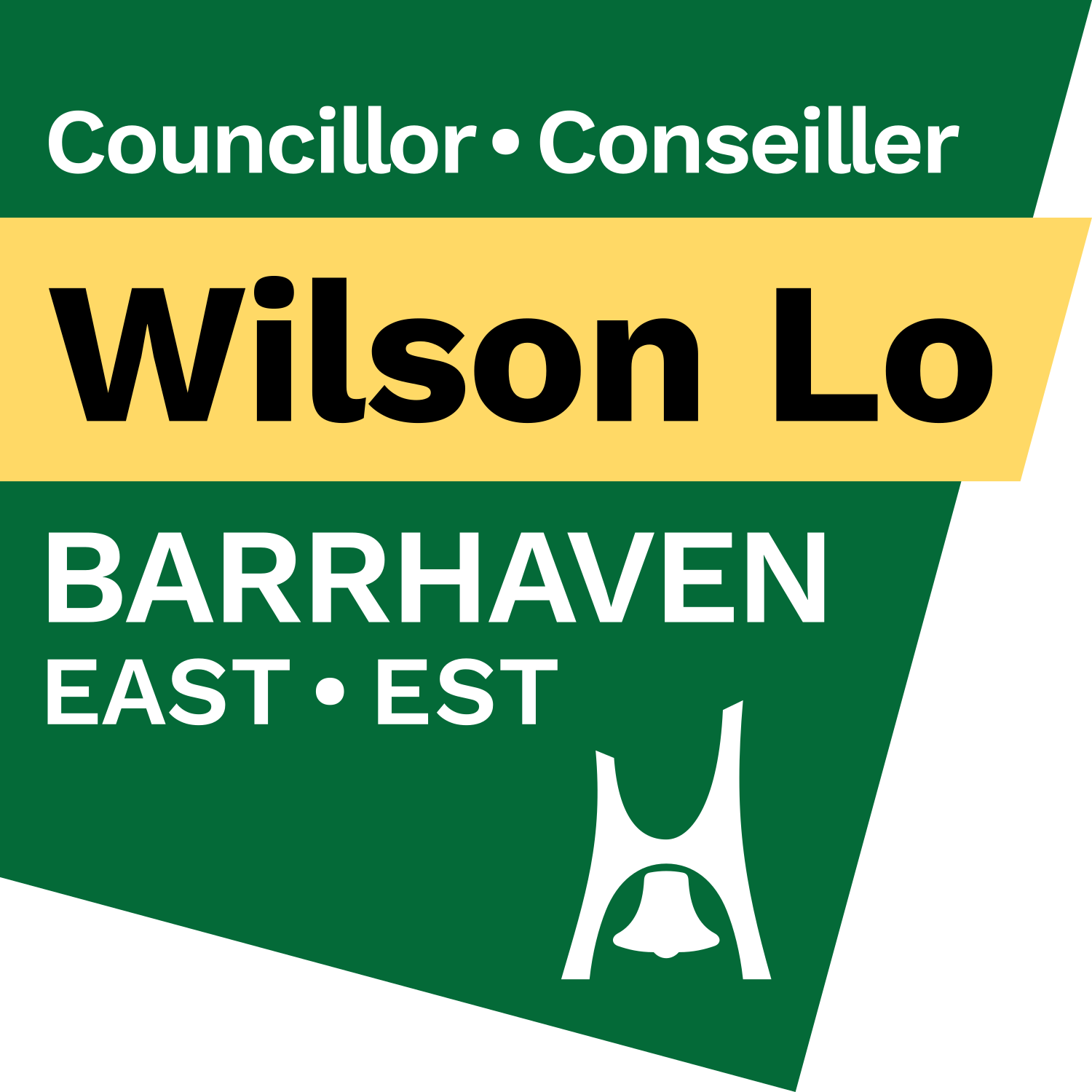Weekly newsletter: March 19, 2024
Hi everyone.
On Sunday, I attended the funeral of the Wickramasinghe family and Gamini Amarakoon, a family friend, whose lives were cut short two weeks ago. The ceremony was sombre and peaceful, as their family, friends, and strangers from across the city said goodbye.
The most emotional moment was when Gamini’s wife and daughter of the family friend spoke via Zoom from Sri Lanka.
My office has been acting has the custodian of the Palmadeo Park and Berrigan Drive memorials. At the request of the family, the cards and memorabilia will be given to the father, while the toys will be transferred to the Buddhist Temple, on Heron Road, and eventually donated.
City crews have also cleaned the area under the pavilion at the park of broken glass and wax from the candles left there and other materials after the vigil last week.
Thank you for being caring and respectful towards the memorials.
Upcoming upgrades to 3-1-1
Many residents may be familiar with the following scenario: you open a service request with 3-1-1, a week or two elapse and the request has yet to be addressed, so you go online to check the status of your request, but it says it’s closed.
What gives? (Insert stronger language here if you prefer.)
Currently, webform submissions by residents to 3-1-1 are captured by a software, which then automatically directs it to the appropriate City department based on the type of request the resident selected to get to the form. The receiving City department would then investigate the request.
Ideally, once staff complete all work associated with the request, it would be marked closed and reflected as such when the resident checks the status of a request online.
Obviously, that is not always the case, or I wouldn’t be writing about it.
While there are instances where City staff would close a request once it’s logged in their work management system, the usual cause of seemingly prematurely closed service requests lies in the software itself — and not because of a bug.
The software currently in use is 10 years old and presents several limitations in how service requests can be managed and communicated, especially those that need to be redirected to another service area.
Redirects happen when the original webform request was filed with the wrong department or needs additional work from another department. For example, an investigation into a request for road maintenance around a sewer cover may uncover an issue with the underground pipe infrastructure.
The software limitation means staff must close the original request and open a new redirect request to send it to another service area. Although notes are added in all related requests referencing the string of requests, they remain internal, and the unsuspecting resident only sees “CLOSED.”
There are actually two other situations where service requests appear to be closed with no action. The first is scheduled services — where staff see the service requested (eg. grass cutting) is scheduled to happen anyway, it will be closed. The other is by-law enforcement, where the request is closed upon attendance by an officer.
You may notice I have been referring to webforms only so far. Requests to 3-1-1 by phone and email are manually entered by staff, which mostly limits redirects to situations requiring the attention of another department.
Come late-spring, that will all change.
Over the last while, staff have been training and testing new software, Microsoft Dynamics 365, in preparation of its launch to replace the current outdated programme. Whereas the old software was a set application, the new software allows for some customisation to cater to the city’s needs.
Unlike the current software, Dynamics will also allow tickets to be reassigned without the need to open a redirect request. Most notably, statuses will no longer just be open or closed for residents checking their requests, providing assurances it is still active.
Initially, that will be the only change visible to residents. Following the rollout of Dynamics, staff will be monitoring and analysing how the service is used to add further changes and improvements, including:
Changing the listed categories when accessing the webform on Ottawa.ca
Automatic (probably email) notifications for residents
Providing more information online about scheduled services, procedure, process, etc.
3-1-1 staff are excited about Dynamics, as it creates many opportunities to improve customer service and customer experience without additional resources. They are equally excited about the further improvements possible after the initial rollout.
Debt collection
Last week, many residents across the city, including some in Barrhaven East, were alerted to negative remarks added to their credit scores due to outstanding debts owed to the City. In some cases, the debts were 20 years old.
Most of the feedback from residents caught in the situation has been relatively similar — that despite living at the same address for more than 20 years, despite having received and paid for other tickets within that time, and despite having received personally-addressed letter mail from the City, there were no notifications, reminders, or warnings sent to them about the supposed outstanding debt.
These are residents who have systems in place to ensure they are on top of invoices, fines, and other payments owing. These are residents who now must deal with the implications of a negative impact to their credit scores, affecting their ability to borrow or to renew mortgages. These are residents who act in good faith when dealing with the City and trusted the system to do the same with them.
In response to resident concerns forwarded by at least a few Councillors, City staff stated in a memo last Thursday that debts repaid to the City (including through a third-party collections agency) are removed from credit records.
However, upon checking with the City’s contracted third-party agency, residents were told differently — that their debt was marked as paid only. Even a recent news report shared both statements in the same segment of the broadcast.
So, what’s what?
As background, the City retains third-party collections agencies to whom the City refers debt owed by residents more than six months past the due date. By referring the debt, the city remains the creditor to whom the debt is owed.
The third-party collects the debt on behalf of the City. The City does not sell its debt.
It has been the practice since amalgamation, which in turn is similar to the practices of some pre-amalgamation municipalities.
On the other hand, commercial debt (eg. credit card debt) is often sold to a third-party agency who then outright owns the debt and collects it for themselves. These debts and agencies are governed by the province’s Collection and Debt Settlement Services Act.
The act includes time limits within which legal pursuit of the commercial debt must begin. In this case, legal pursuit includes suing for wage or bank account garnishment.
Every five years, a competitive process takes place to contract a new third-party collections agency or to renew an existing contract. In this case, Financial Debt Recovery Ltd. (FDR) is a newly contracted agency. All outstanding balances were transferred to them when the five-year contract was signed.
Third-party agencies determine their own practices, including debt collection strategies, in line with what is legal and the city’s goal to collect those debts. Obviously, where FDR’s strategy differed from a previous agency is the use of credit bureau reporting.
Credit bureau reporting is a legal means of collection and widely used by financial institutions and other commercial lenders.
Additionally, there are no statute of limitations on convictions for set fines under the Provincial Offences Act. The City has practically no flexibility in writing them off.
The problem is not in the practice or the procedure, as both are legal and quite standard. The problem is the bungled management and disjointed communications by staff on an issue with such an impact on so many residents.
Although the contract with FDR was signed under delegated authority, staff have a duty to communicate to Council about anything with relatively major implications for residents. Not doing so meant we were caught off guard with no information when the issue surfaced.
However, as part of the organisation’s governing body, I, as your Councillor also have a responsibility to ensure important information flows properly, so we’re not scrambling to get answers for worried and angry residents after situations like these happen.
Once staff finally provide the clarity I am seeking, an update will be shared via a future newsletter or on my Facebook page (and through email to those who reached out there).
Have a great week,
-Wilson


